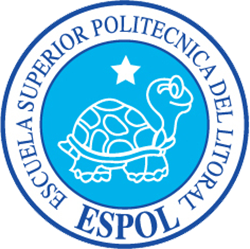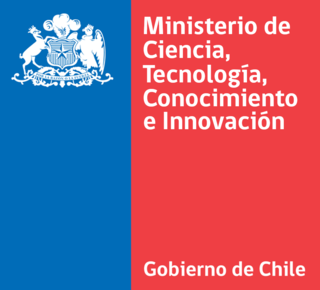
Rosalba Casas Guerrero (born 1950) is a professor of History and Socio-politics at the Montreal University in Canada.

Rosalba Casas Guerrero (born 1950) is a professor of History and Socio-politics at the Montreal University in Canada.
Casas studied sociology at the National Autonomous University of Mexico (UNAM), and has a PhD in Science and Technology Policy from the University of Sussex in England. [1]
She is a regular member of the Mexican Academy of Sciences. She was the Director of the Social Research Institute at the UNAM from 2005 to 2013. [2] She has written or co-written more than 10 books and more than 70 articles.
Casas' academic interests revolve around the development of science and technology and their potential to improve the life quality of different communities. She focuses on new understandings of public policy that put social problems that can be solved through expanded knowledge front and center. [2] Her research has contributed to conversations about the social role of science and technology, and the strategic role of the state in developing countries to impulse STEM activities. [2]

The Centro de Investigación y Docencia Económicas is a Mexican center of research and higher education, specialized in the fields of social sciences, with an international-grade level of excellence. It is financed with public resources. It has been consistently included in the Global Go To Think Tank reports as one of Mexico's top ten think tanks.

The Spanish National Research Council is the largest public institution dedicated to research in Spain and the third largest in Europe. Its main objective is to develop and promote research that will help bring about scientific and technological progress, and it is prepared to collaborate with Spanish and foreign entities in order to achieve this aim.
Fernando Ramón Martínez Heredia was a prominent Cuban revolutionary thinker and politician. Martínez was a founding member of the Cuban Communist Party, and as a member of the July 26 Movement, he took part in the Revolution which overthrow the Batista dictatorship.

Imanol Ordorika Sacristán is a Mexican social activist, political leader, academic and intellectual. He was one of the initiators and principal leaders of the Consejo Estudiantil Universitario at the National Autonomous University of Mexico (Universidad Nacional Autónoma de México, UNAM), with Carlos Imaz Gispert and Antonio Santos Romero, from 1986 to 1990. A founder and prominent member of the Partido de la Revolución Democrática (PRD) until 2001. Professor of social sciences and education at the Universidad Nacional Autonoma de Mexico. Ordorika is an active participant in the Mexican political debate as well as an Op-ed writer for La Jornada and other Mexican media.
Latindex is a bibliographical information system available for free consultation. Established as a network in 1997, the project is based on the cooperation of 17 national resource centers that operate in a coordinated scheme for the gathering and dissemination of relevant information and data on the Iberoamerican journals.

María Alejandra Bravo de la Parra is a Mexican biochemist who was laureated with the 2010 L'Oréal-UNESCO Award for Women in Science – Latin America for her work on a bacterial toxin that acts as a powerful insecticide. Bravo has co-authored multiple papers with her husband Mario Soberon.

The Centro Universitario de Investigaciones Bibliotecológicas (CUIB) of the Universidad Nacional Autónoma de México (UNAM), was created on December 14, 1981 according to the creation agreement, signed by the Dean PhD. Octavio Rivero Serrano. Its goal is theoretical and applied research on phenomena related to the information registered on printed forms and other media: its sources, selection and acquisition, its organization and representation, in addition to the problems concerning the media, processes and technologies used for the storage, recover and distribution of the information.

Julio Ernesto Rubio Barrios is a Mexican researcher and administrator at Monterrey Institute of Technology and Higher Education.

The Escuela Superior Politécnica del Litoral (ESPOL) is a public university located in Guayaquil, Guayas Province in Ecuador. ESPOL has five faculties or schools, fifteen research centers, and several associated centers providing twenty-six undergraduate and ten master's degrees.

Omar Guerrero Orozco, Ph.D. in Public Administration by the National Autonomous University of Mexico, is full-time professor at the same institution and National Researcher Level III, which is the maximum level. He was director of the National Institute of Public Administration magazine from 1980 to 1982. He was member of the Social Sciences Committee of the National System of Researchers, collegial body in which he served as president (2003). He was recipient in 1979 of the “Public Administration Award” granted by the INAP. Guerrero is also member of the National Academy of Sciences since 1987 and of the Mexican Culture Seminar since 2006.

María Isabel Studer Noguez is Director of Alianza University of California-Mexico. She was Director for Strategic Initiatives for Latin America and Executive Director for Mexico and Northern Central America of The Nature Conservancy. She was Director General for International Economic Cooperation at the Mexican Agency for International Cooperation, where she launched the Partnership for Sustainability with the aim of engaging the private sector in developing public-private projects around the 2030 Sustainable Development Agenda. For almost a decade, she was a professor and researcher in international relations at the Monterrey Institute of Technology and Higher Education, principally working as the director of the Instituto Global para la Sostenibilidad (IGS), formerly the Centro de Diálogo y Análysis sobre América del Norte (CEDAN). She began her academic career working in international relations and has held positions in both Mexico and the United States teaching, researching, advising and writing on topics related to international relations, especially in North America, business and environmental issues. Her publications include books, scholarly articles as well as articles and columns for various media.

María Elena Meneses Rocha was a Mexican journalist, professor of journalism and researcher into media, communications and the Internet with the Monterrey Institute of Technology and Higher Education, Mexico City. On the campus she taught and was the coordinator of the Cátedra Sociedad de la Información, which does research and consulting in mass media and information technology. She also worked with mass media, as a writer and as a commentator for print, broadcast and Internet media, mostly commenting on information technologies.
Sistema Nacional de Investigadores or SNI is a governmental agency established in Mexico in 1984 to promote both the quantity and quality of research in Mexico, especially in the sciences. In the 1980s, the country suffered from “brain drain,” with talent leaving Mexico for better economic opportunities in other places in the world. SNI first worked to establish compensation guides to keep researchers in the country, but since has also been involved in the reform of Mexico's graduate-level education. Membership in the system is prestigious, especially in Levels II, III, and Emeritus, which require demonstration of significant contributions in research as well as teaching and the promotion of research in Mexico.

Delia Crovi Druetta is a professor and researcher in communications and Latin American studies at the Universidad Nacional Autónoma de México, member of the Sistema Nacional de Investigadores, Level III.
María de la Luz Casas Pérez was a Mexican professor and researcher with the Monterrey Institute of Technology and Higher Studies, in the field of communications and politics. Her research work has been recognized by the Mexican government with Level II membership in the Sistema Nacional de Investigadores.
Carlos Guerrero de Lizardi is a Mexican professor and researcher in economics with the Monterrey Institute of Technology and Higher Education, currently the director of the masters program in economics and public policy at the Mexico City campus. His work has been recognized with Level II membership in Mexico's Sistema Nacional de Investigadores.

The Ministry of Science, Technology, Knowledge and Innovation is the Ministry of State of Chile in charge of structuring, promoting, coordinating and promoting science, humanities and technological development activities in all their stages, to contribute to the sustainable development and social welfare of the country. It was created as a replacement for the National Commission for Scientific and Technological Research, which was in charge of the Ministry of Education. The current minister of the ministry is Silvia Díaz, who was appointed by Gabriel Boric on September 6, 2022.
Sonia Lorena Arriaga García is a Mexican is a Mexican environmental biotechnologist, professor, and researcher. She is a Senior Researcher B at the Potosino Institute of Scientific and Technological Research (IPICYT) and a Level III member of the National System of Researchers (SNI). Her research focuses on the treatment of volatile organic compounds, mathematical modeling of biofiltration processes, and the treatment of bioaerosols emitted by biofilters through advanced oxidation processes.

Rosaura Ruiz Gutiérrez is a prominent biologist, university professor, researcher, and academic who specializes in the interdisciplinary study of evolutionary theories from scientific, historical, and philosophical perspectives. She is currently serving as the head of the National Council for Humanities, Sciences, and Technologies (CONACYT) of Mexico, appointed on October 1, 2024, by President Claudia Sheinbaum.